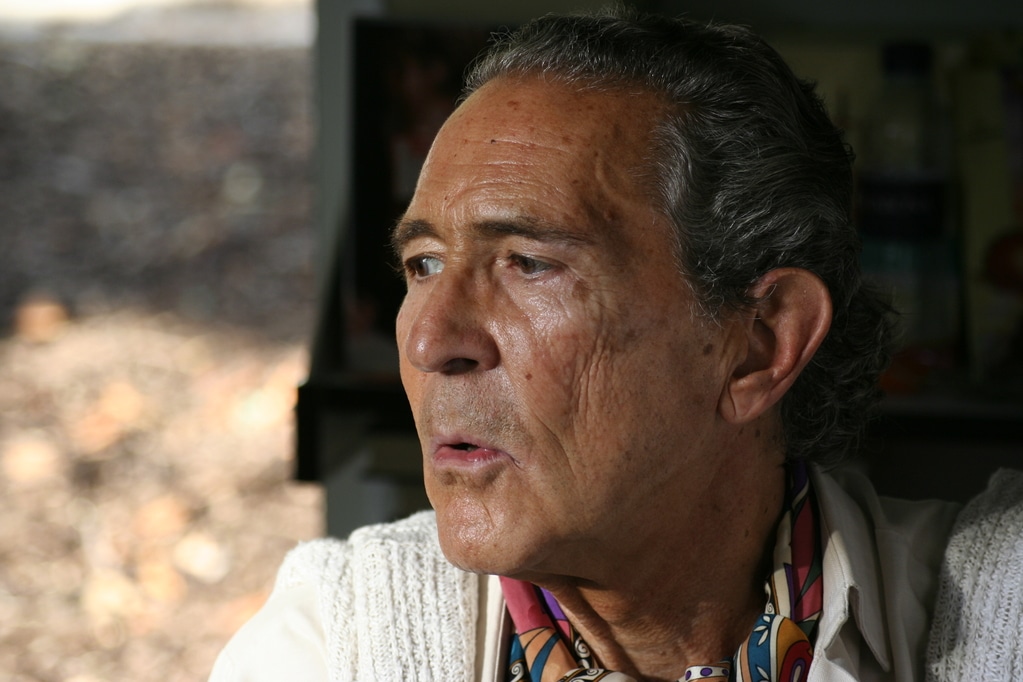In an era when talking about artificial intelligence seemed straight out of science fiction, writer Antonio Gala offered a surprisingly clear-eyed—and critical—vision of the technological future. It was 1991, during an interview with Jesús Quintero for Andalucía Public Television, when Gala shared reflections that, more than three decades later, could be mistaken for an essay on the social impacts of generative AI, hyperconnectivity, and the automation of human experience.
Gala, with his usual precise language, foresaw a world where “natural intelligence will be replaced by artificial intelligences that won’t come to give us happiness but to help us pass the time.” An unnervingly relevant idea amidst the rise of conversational assistants, recommendation algorithms, and platforms that occupy much of our leisure and attention.
From Prediction to Present: Programmed Behaviors and Prefabricated Emotions
The vision shared on the program “Paradises” spoke of “pre-fabricated” humans guided by behavioral instructions and simplified social formulas: how to succeed, how to make friends, how to enjoy. What he sensed as a possible loss of spontaneity in human relationships now resembles how social media, engagement algorithms, and user interfaces condition—and sometimes dictate—our behaviors and decisions.
Gala’s critique wasn’t directed at the technology itself but at the risk of delegating to it processes that were once personal and genuine. Today, it’s common to ask AI what to say in a job interview, how to write an email, what gift to buy, or even how to flirt. As we become increasingly dependent on these systems, we also normalize the idea that external judgment—from a machine, an app—is more valid or efficient than our own.
Knowing Without Wanting to Know: The Predictive Google Effect
In another program broadcast weeks later, “Truth and Beauty,” the Cordovan writer went a step further: “Soon, it will seem possible for anyone, pressing a button, to immediately know who Goya, Velázquez, or Cervantes is. But I fear that person won’t feel the slightest need to know it.”
This reflection anticipated one of the deepest dilemmas of the information age: the abundance of data doesn’t guarantee genuine interest or real knowledge. In current terms, Gala was describing the phenomenon of superficial knowledge—many studies attribute this to the widespread use of search engines, voice assistants, and AI tools that provide instant answers but rarely promote deep understanding or critical thinking.
AI as Entertainment, Not Emancipation
For Gala, the most subtle risk of artificial intelligence wasn’t its technical capacity but its social function: serving as a distraction, passive entertainment, a means of “passing the time.” An AI that’s not hostile or oppressive but anesthetizing. In a way, this echoes the debates today around platforms like TikTok, doomscrolling algorithms, and even how large language models can foster intellectual passivity when they become oracles delivering immediate responses.
In today’s technological landscape, where AI is integrated into everything—from healthcare to education, entertainment, and productivity—Gala’s words invite us to pause and reflect: Are we using technology to enhance our abilities or to replace them? Is it there to help us evolve, or does it lull us into comfort and dopamine-driven complacency?
A Cultural, Not Technical, Testimony That’s Deeply Accurate
Although Antonio Gala was neither a technologist nor a scientist, his sensitivity as an observer of the human condition allowed him to ask questions that many today in the tech and philosophical fields are still pondering. In times when AI’s promises clash with their own ethical and social limits, it’s revealing that a Spanish writer, during the digital transition, could foresee so clearly.
What he hinted at is that the real challenge isn’t building more powerful artificial intelligences but ensuring we don’t stop cultivating human intelligence: the kind that questions, doubts, and feels the need to learn—and not just consume answers.
Technology advances, but Gala’s warning remains relevant: if we are unaware of how we use it, we might end up replacing thought with inertia and emotion with automation. Perhaps that would be the highest price of progress.


